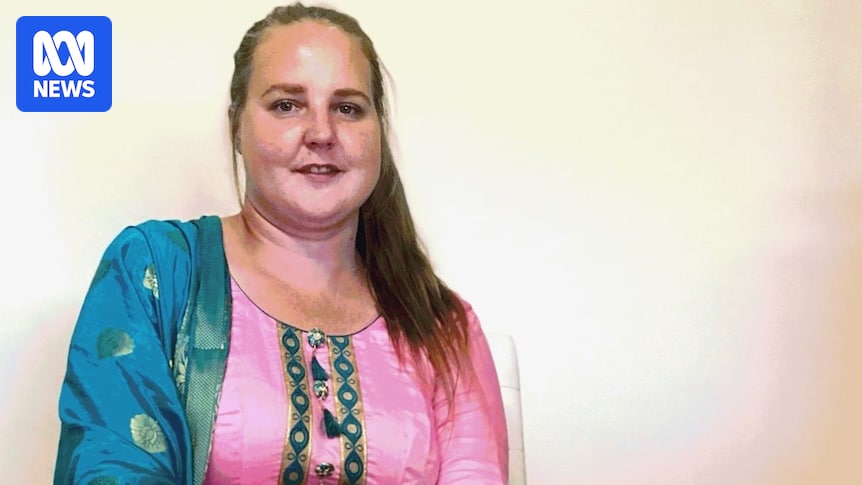A mother found not guilty of attempted murder by way of mental incompetence after stabbing her two sons multiple times on an Adelaide motorway, has been sentenced to a limited fixed term of 12 years in a mental health facility.
WARNING: This story contains content that some readers may find upsetting.
Megan Jayne Somerville, 38, appeared in South Australia’s Supreme Court via video link on Tuesday.
A court previously heard Ms Somerville stopped her silver sedan on the North-South Motorway on August 15, 2022, removed her two sons, who were then aged three and eight, and stabbed them several times.
Family and domestic violence support services:
If you need help immediately call emergency services on triple-0
Both children survived but were badly injured.
The court heard she had been suffering from mental impairment and self-induced drug intoxication with cannabis and methamphetamine.
Her lawyer Jeffrey Powell previously made an application for his client to take supervised trips outside of mental health facility James Nash House but dropped that application today to raise at another time.
“I must say, the approach that’s been taken today is very sensible and I commend your client for her attitude,” Justice Sandi McDonald said.
Megan Somerville was found not guilty by way of mental incompetence. (Facebook)
Ms Somerville wiped away tears as Justice McDonald summarised the stabbing incident.
“Ms Somerville’s mental impairment at the time of the conduct giving rise to the offences was substantially caused by self-induced intoxication,” Justice McDonald said.
The court heard that Ms Somerville suffered from treatment-resistant schizophrenia and borderline personality disorder.
It also heard she had “remained extremely agitated with strong persecutory ideas similar to those that she held at the time of her arrest” long after illicit intoxicants had passed from her system and despite being treated with antipsychotic medication.
Justice McDonald said Ms Somerville’s treating psychiatrist had since commenced her on another antipsychotic medication, alongside “psychological therapy and occupational sensory input to assist her with the ruminations and complex trauma”.
“Nonetheless, some of her delusions persisted,” Justice McDonald said.
No supervised released to community
Justice McDonald said while her treating psychiatrist had indicated both “positive and negative prognosis indicators” and “some response to treatment with improvements in mental state”, the persistence of some delusions was “concerning”.
If you or anyone you know needs help:Suicide Call Back Service on 1300 659 467Lifeline on 13 11 14Aboriginal & Torres Strait Islander crisis support line 13YARN on 13 92 76Kids Helpline on 1800 551 800Beyond Blue on 1300 224 636Headspace on 1800 650 890ReachOut at au.reachout.comMensLine Australia on 1300 789 978QLife 1800 184 527
“Ms Somerville retains excellent occupational functioning. She is expected to engage well in future in psychological therapy on an individual and group basis, however she will need to show substantial resilience given the long-term impact of her offending of herself, her children, and her family,” Justice McDonald said.
“It is [treating psychiatrist] Doctor Haeney’s view that given the enormity of her offence and the residual symptoms still evident, it would not be appropriate to consider release on licence, whether to live in the community or commence accompanying leave from James Nash House.”
Justice McDonald acknowledged that this did not preclude Ms Somerville from making an application to vary the supervision order at an “appropriate time” to transition back into the community.
“There is no dispute that use of leave is a vital factor in maintaining function, assessing progress, and preparing a person for their eventual discharge, but in my opinion, it is too soon to commence this for Ms Somerville,” she said.
“In my view, the only appropriate order is that Ms Somerville will be committed to detention.
“In due course, it will be open to her to make an application for release on licence when her risk to the safety of the community is reduced to acceptable level.”
Justice McDonald said she had taken into consideration Ms Somerville’s family and social circumstances, her lack of prior criminal offending, the circumstances and seriousness of the offences, and the impact to the victims of her offences.
“In my view, taking all of these matters into account, the appropriate starting point for the limiting term is 15 years,” she said.
Justice McDonald said she also took into account the time Ms Somerville had already spent at James Nash House and reduced the term by three years, fixing a limiting term of 12 years.

